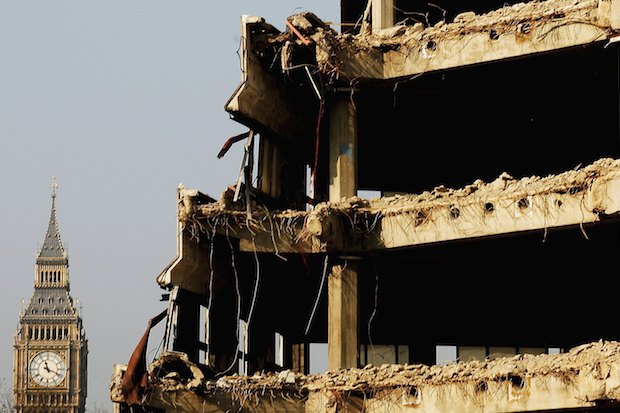The apparently eternal battle between politicians and bureaucrats for control of the government machine has been better for TV comedy writers than for the governance of Britain. Ministers complain that officials obstruct their plans to implement election promises; officials complain that special advisers drive a short-term media-obsessed agenda, and everyone objects to interference from the centre (except at the centre where everyone complains about off-message barons pursuing personal agendas).
The first big divide that any minister faces is between policy advice and operational capacity. I will start with policy, because it is where the British Civil Service has always prided itself on providing a Rolls-Royce service. In most areas their pride is fully justified. As a minister it is normally true that if you are not getting good advice it is your fault.
Much less satisfactory than the policymaking area is the ability of departments to run day-to-day operations, especially those which demand large numbers of transactions. At various times difficulties within the benefits system, with tax collection and with all parts of the immigration system have become significant political problems. Each has been the result of individual difficulties and failures, but one systemic unifying factor has been the unwillingness of the system’s high-flyers to spend more than the minimum amount of time in their early career in operational jobs.
Whatever the rhetoric, and indeed genuine desire, from the top of Whitehall to improve the relative status of the operational jobs, it has not permeated down. As one young, talented and ambitious official told me: “No one ever became a permanent secretary because they were good at running a Job Centre.”
The answer lies elsewhere, in the infusion of managerial talent at all levels of these operational parts of the system. Given that salaries are likely to remain less flexible than those in the private sector this does involve persuading a higher proportion of those with most talent in the Civil Service to spend a greater amount of their career in these jobs. This will only happen if operational jobs are seen as the route to the top.
One of the other issues which needs addressing is the proliferation of “centres” inside Whitehall. The Blair/Brown era saw HM Treasury entrench its power, and to counteract this, the Downing Street operation massively increased its capacity and therefore its ability and willingness to control the detail of policy. Added to this is the growing ambition of the Cabinet Office not just to act as the guardian of the machinery of government, but to play an active role in decisions as they are being made.
There is a good case to be made for any or all of these institutions flexing their muscles. But it cannot be sensible to have three different central departments asserting their ultimate authority, particularly when they do so at such a late stage of the normal negotiating process as to introduce completely new arguments long after they should have been factored into discussions. This happens more often than it should.
One of the questions which has never been resolved is the involvement of policy advisers at Number 10 in the early stages of policy development. Some departments (and some ministers) welcome this, while others regard is as an affront to their authority and ensure it does not happen. It cannot be impossible to organise a set of rules which sets down what should and should not happen at each stage of the policy preparation process to ensure that all interested parties have their say at the appropriate stage.
Despite these extensive caveats, my overall verdict on the system is that the real problems do not lie with the eternal war between the politician and the official. While there are improvements to be made in the training and career planning of civil servants, there are also serious questions to be asked about how ministers are trained, chosen and assessed.
Of course there are complex political factors to be taken into account in the choice of ministers, but the fact that there is almost no formal preparation for the job, little or no professional development while in the job, and no objective assessment about performance means, in the long run, that the relative balance of power between ministers and officials is skewed towards the Civil Service. Politicians who complain about this may in individual instances be right, but the solution is in our own hands. We take the job of being a minister incredibly seriously as a mark of status, but treat the skills required to be a good minister with cavalier indifference. Until we rectify this, we will continue to provide excellent material for new generations of comedy writers.
Rt Hon Damian Green MP is the Member of Parliament for Ashford. This is an abridged version of an essay published today by the independent think tank Reform (www.reform.co.uk).






Comments